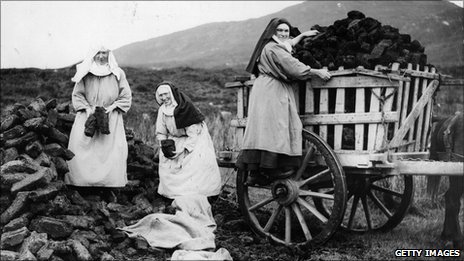search
date/time
 | Yorkshire Times Weekend Edition |

Steve Whitaker
Features Writer
@stevewhitaker1.bsky.social
2:40 AM 3rd March 2018
arts
Poem Of The Week: 'Digging' By Seamus Heaney

Seamus Heaney
Between my finger and my thumb
The squat pen rests; snug as a gun.
Under my window, a clean rasping sound
When the spade sinks into gravelly ground:
My father, digging. I look down
Till his straining rump among the flowerbeds
Bends low, comes up twenty years away
Stooping in rhythm through potato drills
Where he was digging.
The coarse boot nestled on the lug, the shaft
Against the inside knee was levered firmly.
He rooted out tall tops, buried the bright edge deep
To scatter new potatoes that we picked,
Loving their cool hardness in our hands.
By God, the old man could handle a spade.
Just like his old man.
My grandfather cut more turf in a day
Than any other man on Toner's bog.
Once I carried him milk in a bottle
Corked sloppily with paper. He straightened up
To drink it, then fell to right away
Nicking and slicing neatly, heaving sods
Over his shoulder, going down and down
For the good turf. Digging.
The cold smell of potato mould, the squelch and slap
Of soggy peat, the curt cuts of an edge
Through living roots awaken in my head.
But I've no spade to follow men like them.
Between my finger and my thumb
The squat pen rests.
I'll dig with it.
This early exemplar of Seamus Heaney's poetry made a kind of statement of intention: a declaration of poet as artisan wordsmith, claiming ground previously trodden by generations of his farming forefathers, as fertile land for the growing of words.
That 'Digging' is the first poem in the first volume Heaney published - Death of a Naturalist - consolidates a more general approach he had initially aired to the Belfast Group of poets, before publication in 1966. Although many poets have spoken of the profound sense of self-worth conferred by identification, few have done so with such poignant gravitas, or affecting simplicity.

Present in his imagination as he writes, the narrator conjures a vision of his father and grandfather, each at his labours, each blent in an act of reverence before his potato-bed or peat hag, as strong and silently stoical as oaks. Not reverence in the religious sense: rather, in the paying of due homage to a landscape both men understand instinctively, a terrain which commands respect as it yields to the 'bright edge' of steel.
The clever metrical heft of the verse - mostly steady iambics - shadows the regular 'clean' rasp of a sinking spade, and the slicing and chopping of soil or turf which follows. But most we remember the satisfying extraneous sounds of the farm and the moor, rendered onomatopoeically: the rasping, straining, heaving, squelching and slapping which effortlessly draw the reader - or more properly, listener - to a rural Northern Ireland of the imagination.
Also by Steve Whitaker...
All That Is Unspoken: In A Quiet Land By Sean BodyPoem Of The Week: The Day Room (I) By Kit WrightVisionary Gleam: The Lake Poets - An AnthologyPoem Of The Week: The Sick Rose by William Blake (1757-1827)Poem Of The Week: Why Brownlee Left By Paul MuldoonGuns are not unusual in farming communities - the unsentimental facts of economic survival sometimes demand a pragmatic brutalism - and it is possible that Heaney is echoing his fear for an, at this point, uncertain writer's future in this unsettling oxymoron. But it is also seems likely that the 'Troubles', which began only a couple of years after this book was published, and continued for a further thirty, were stirring in the poet's mind at the time of writing.
Heaney finds a metaphor for the act of poetic creation, the art of writing itself, in the measured, rhythmical tilling of the land in 'Digging': grandfather, father and son are bound together, through labour and love, in an arc of endurance which is both productive and self-sustaining. The poem's final three lines - now as frequently repeated as many in Shakespeare - stake a claim for the idea of poetry as work, and vocation.